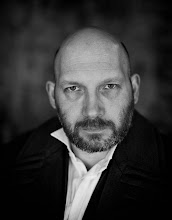 The short story is in peril, or so we are told, and there are those who are confidently (and not without a certain amount of schadenfreude) predicting its imminent death.
The short story is in peril, or so we are told, and there are those who are confidently (and not without a certain amount of schadenfreude) predicting its imminent death.At a casual glance, it’s easy to see why: magazines close every day (Realms of Fantasy, for instance, recently announced that it was to fold), the circulation figures for even the biggest genre magazines have dwindled to a shadow of their former selves, and the Big Publishing Houses rarely produce either single author collections or anthologies of new writing – even the prestigious Year’s Best anthologies are under threat these days.
Stephen King has described the short story as a dying art, although he is one of its last commercial viable exponents, and publishing trends veer more and more towards the doorstep novel or the trilogy form. Yes, things are in a bad way.
Or are they?
Although hardly an optimist by either nature or nurture I prefer to see the brighter side of things. Historically and culturally they often serve as very much an apprenticeship for those writers who go on to produce novels. In science fiction and fantasy they are very often the sounding boards for larger and more complex works, (Philip K. Dick’s Do Androids Dream of Electric Sheep found its germ in The Little Black Box, for instance) or become an integral part of a ‘fix-up’ novel (such as Keith Roberts’ Pavane or Clifford Simak’s City).
Granted, there were and are those writers who find that the short story suits their style and temperament – James Tiptree Jr’s best work was, arguably, produced in the short field and similar case is true of Raymond Carver – and there are those writers who have produced a substantial body of work in the short form even when they have been principally known as novelists (Norman Spinrad, Thomas M. Disch, Michael Moorcock, to name but three)
Of course, Tiptree, Carver, Dick , Simak and a host of others were working at a time when magazine publication flourished, when experimentation was encouraged and there was a hunger for new product. Writers who chose the short form over the novel are working in a much different environment, yet at the same time there are literally hundreds if not thousands of new short stories being published every month on the internet. Quality varies, of course, but then again it always did. The e-zine or webzine, the natural electronic descendant of the fanzine or small press magazine, is in a healthy state as far as I can see, and there is a thriving community of writers, editors and illustrators who find their expression online.
What we have lost is, generally speaking, the professional printed market – those magazines who would pay high rates for short fiction – although they have been replaced with online markets who’s payscales often equal those of the printed media. What those critics who bemoan the state-of-the-art are really talking about is the death of the paying market, rather than the short story itself but then it has been very rare for any writer to make a living producing short stories.
It has, though, led to an evolution in the short story. The days of lengthy passages or large chunks of text have gone in favour of a punchier style more suited to reading online (imagine, if you will, trying to read One Hundred Years of Solitude online with its dense on-page appearance). Flash fiction is rapidly becoming a staple of online magazines – those stories of 1,000 words or less that take their tone from the very short fiction of Hemmingway, Richard Brautigan or Frederic Brown. Yet there is still a place online and in the world for the ‘traditional’ short story running anywhere from 1,000 – 10,000 words.
Similarly there are those small presses who continue to produce anthologies of new writing on good, old-fashioned honest-to-god paper, and print-on-demand books are rapidly becoming a force to be reckoned with.
Far from dead, the short story has simply found new avenues, the difficulty for the reader is to sort out the wheat from the chaff, but then again it was ever so.


No comments:
Post a Comment